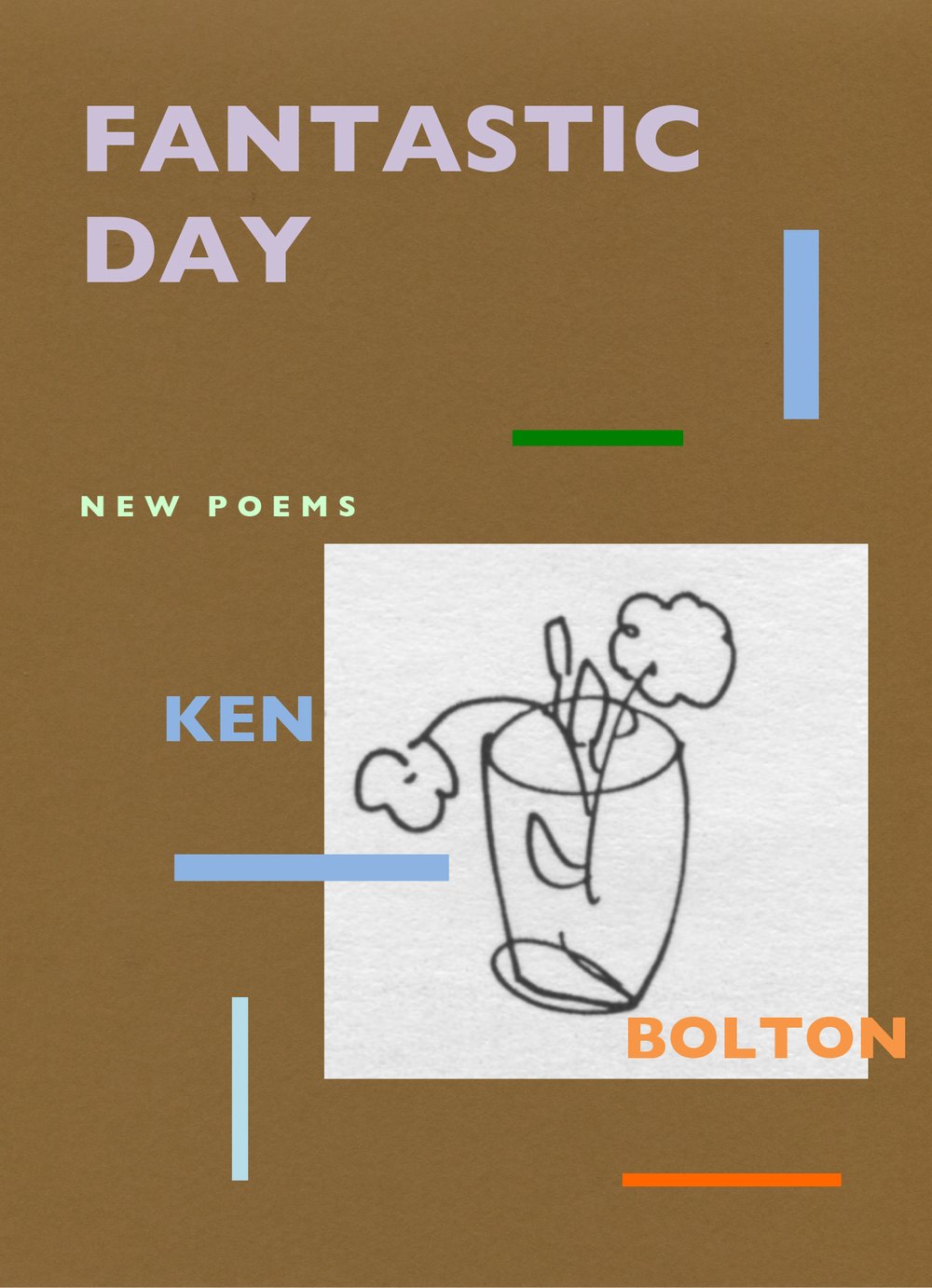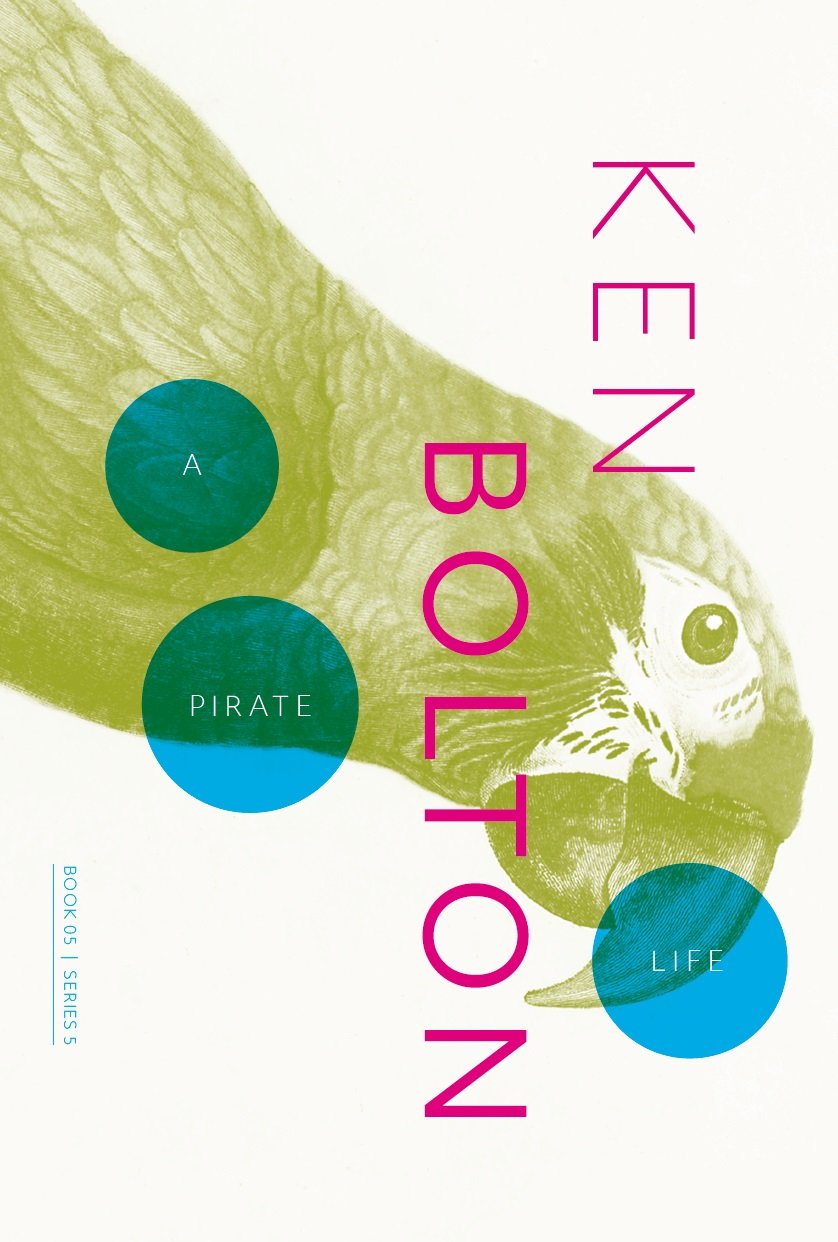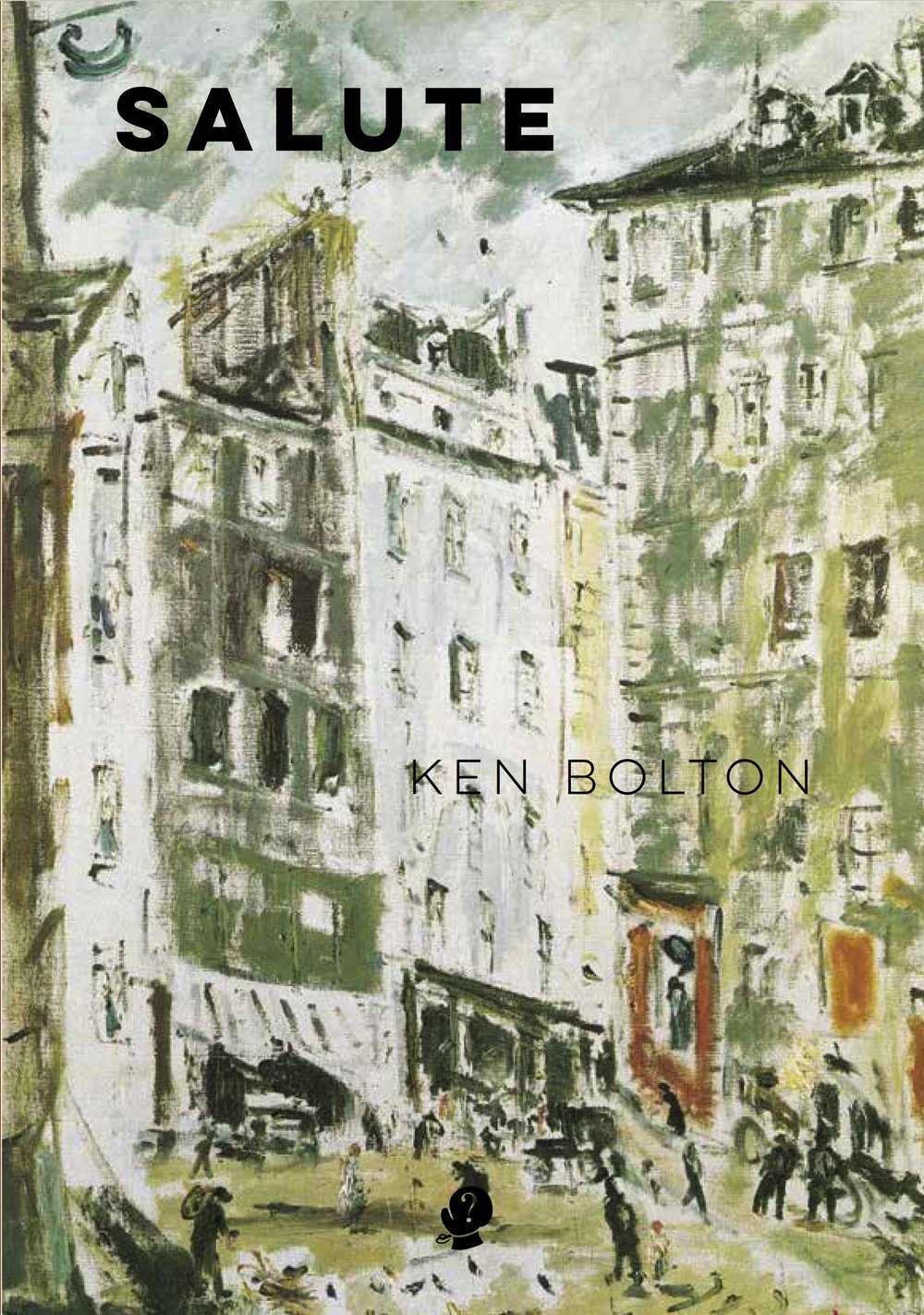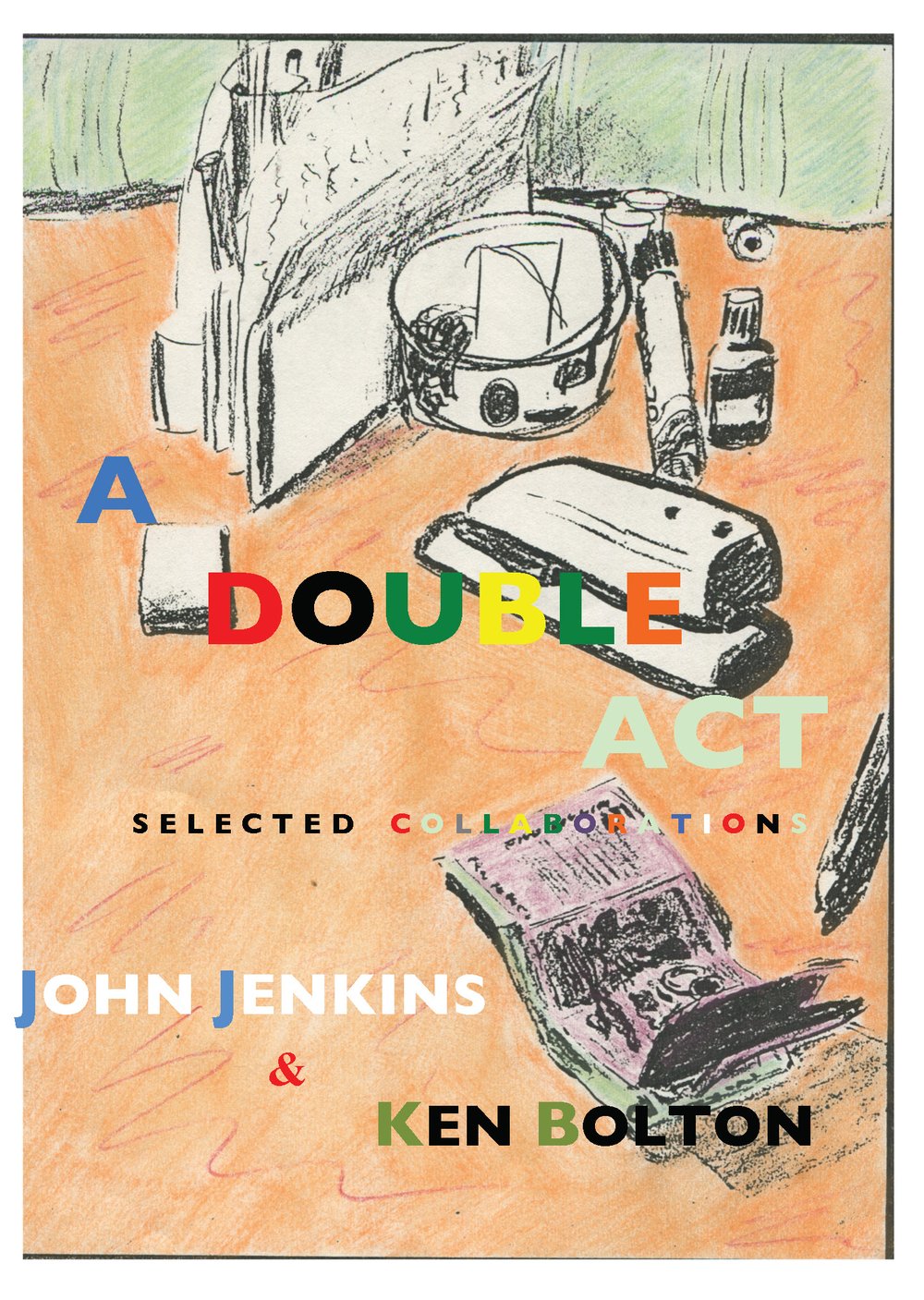Fantastic Day
New Poems

Known for their allusiveness and indirection, Bolton's poems can also be jaw-droppingly direct, as they make their way towards resolutions never clearly within their sights, achieved rather than aimed for. Fantastic Day performs philosophy, history, criticism — all three and satire at the same time, in the dolefully droll Hullo (which considers our literature's ambitions and its very different fortunes) —parody and sincerity, in a strange mutual bind, in Birds of Rome, which looks at Italy or 'travel' while guying the genre 'travel writing' and, while doing so, mounts a show of rebellion against New York. Both poems attempt to negotiate with the international canon.
The poems in Fantastic Day set out a range of styles and manners: lyric, fractured, discursive. They are frequently funny, regularly beautiful (see the two poems named after jazz tunes, Star Eyes and Ascension), and masterful in wielding a casual, almost idle precision in the service of thinking — thinking about politics (the Letter to John Forbes, A Saturday), about friendship, about time, even aesthetics. The Letter, initially modelled on Auden's 'Letter to Lord Byron', treats friendship, time, and a recent Australia — and the same might be said of many of the poems: Briefing Mary Christie, the faux naif account of artist Richard Grayson's life, the Rousselian simulation of artist Shaun Kirby's work, or of Vivienne Miller's. Along the way we meet poems as different as Travellin' Man and Reach & Ambition. The range is considerable, the unity unmistakeable.
This volume concludes with a remarkable long poem, Wiesengrund, in part a paean to the philosopher Adorno, but as much a dedication to various philosophers and critics (Clement Greenberg, Donald Brook, Cesar Aira, Lucy Lippard) and, in its musical construction, an elegiac account of … what? … history, politics, experience.

A gay, light-hearted bastard, Ken Bolton cuts a moodily romantic figure within the dun Australian literary landscape, his name inevitably conjuring perhaps that best known image of him, bow-tie askew, grinning cheerfully, at the wheel of his 1955 Jaguar D-type, El Cid. It is this image that also carries in its train the stories of later suffering — the affairs, the court appearances, the bad teeth—and, speaking of teeth, the beautiful poems wrenched from the teeth of despair & written on the wrist of happiness “where happiness happens to like its poems written best” (in his inordinate phrase).
Ken Bolton worked for many years at the Experimental Art Foundation in Adelaide. A selection of his art criticism is collected in Art Writing (CACSA). He edited the magazines Magic Sam and Otis Rush, as well as the memorial volume Homage To John Forbes, wrote the monograph on artist Michelle Nikou and edited More Is Plenty, a book on artist Kurt Brereton. Really good earlier titles include Untimely Meditations, A Whistled Bit of Bop, Threefer. They are just some. Much of his collaborative writing with John Jenkins has been published, but only in Little Esther books. The selection, A Double Act, however, is imminent. His work with Peter Bakowski appears regularly: The Elsewhere Variations, Nearly Lunch, and Waldo's Game so far.




